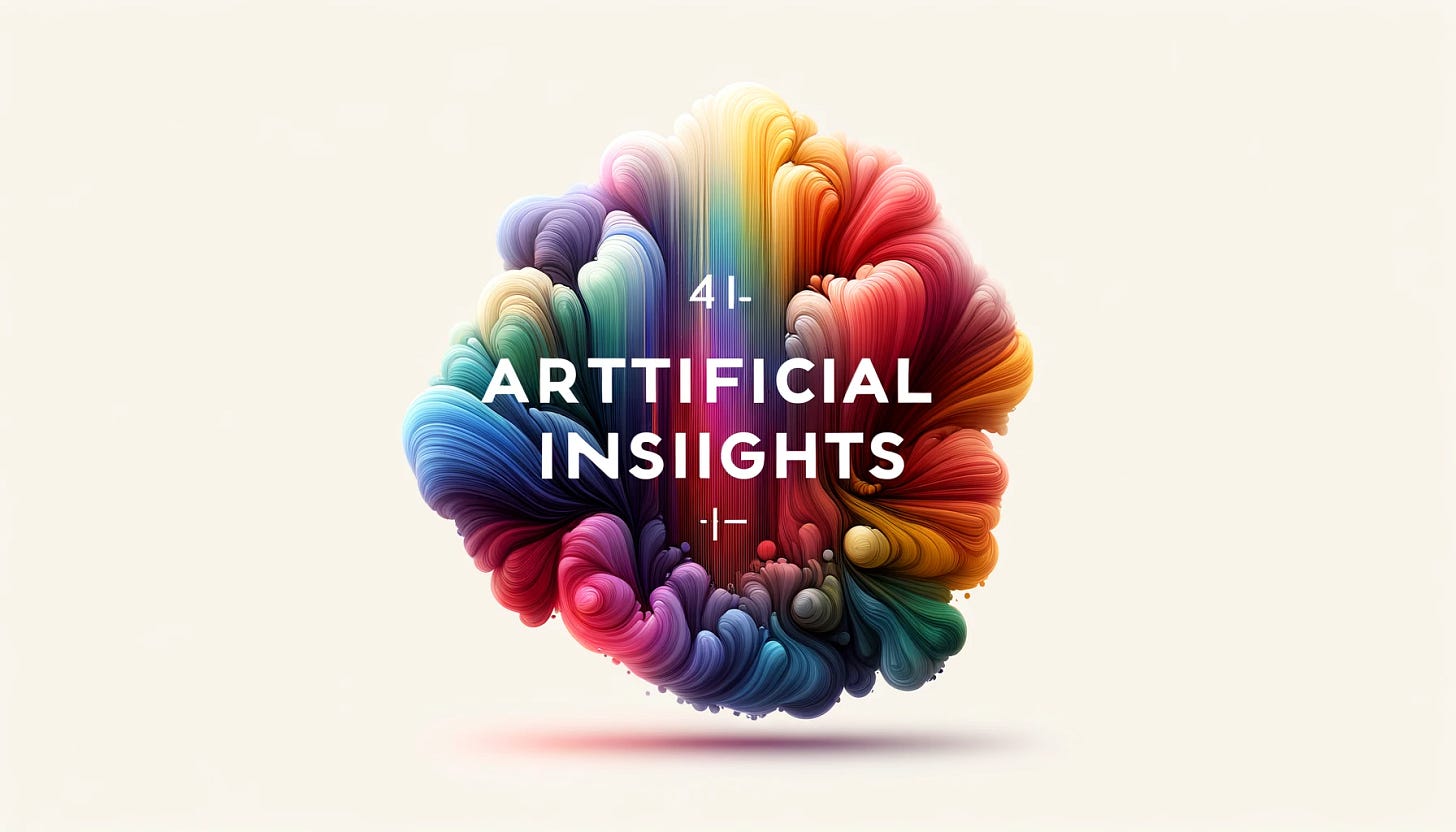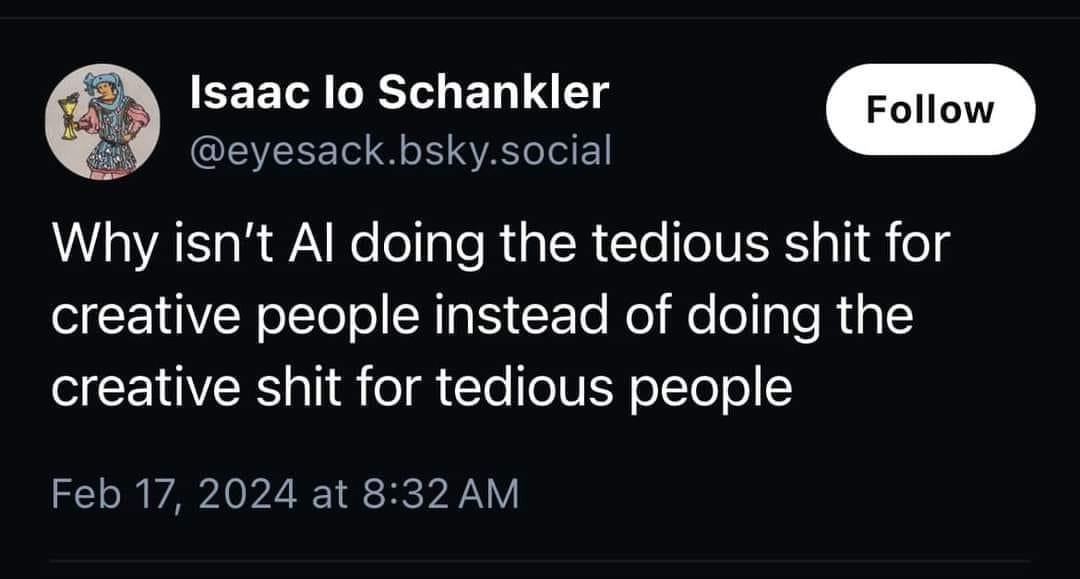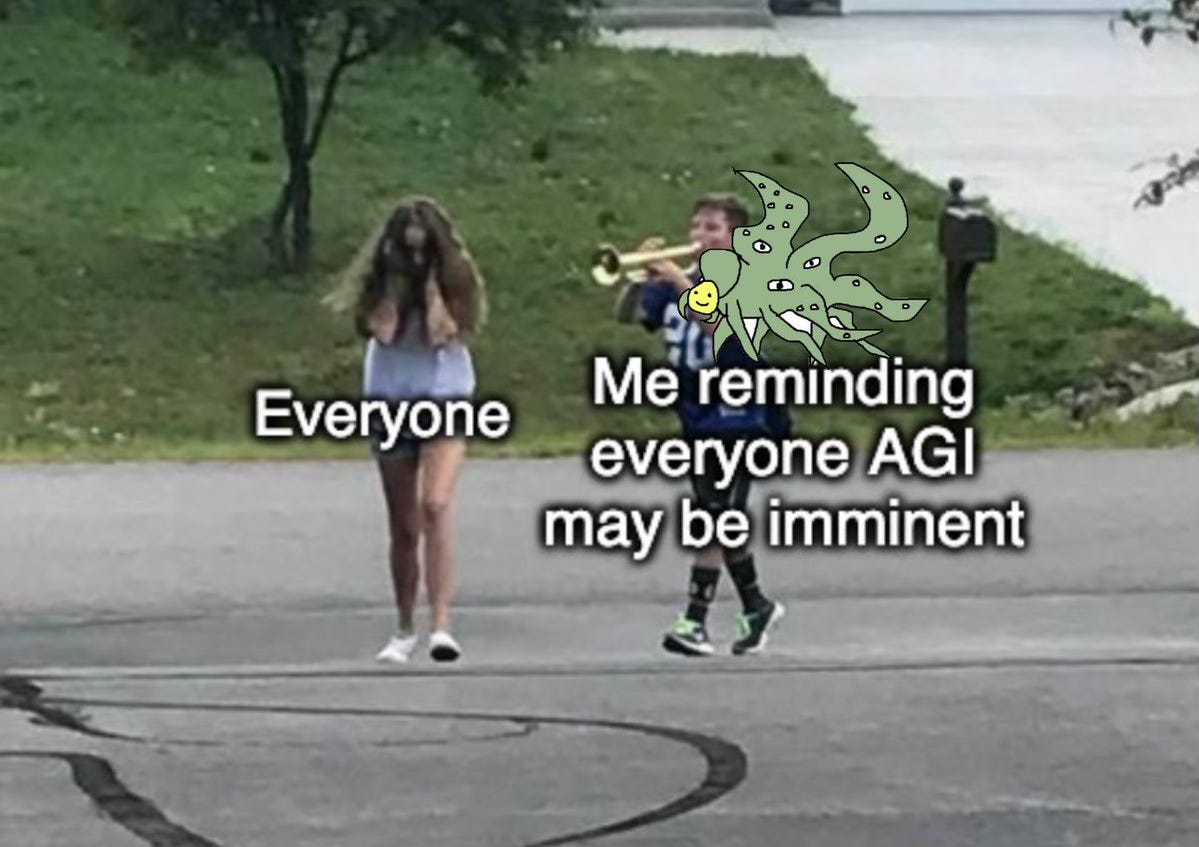Open only in name (041)
Exploring many kinds of human-machine augmentation.
Happy Monday and welcome to your weekly guide to artificial imagination.
Last week we launched a dedicated WhatsApp group 💬, which was an immediate success! About a dozen readers have already joined to share links and insights. I look forward to seeing more of you there, and offering more of a dialogue than a newsletter usually allows.
Today’s issue is packed with interesting links to interviews and insights which caught my attention in the past few days, and short on personal commentary. Will have lots to share in the coming months and looking incredibly forward to having you near me on this journey. Hope to see you on WhatsApp!
Until next week,
MZ
Interview with Jensen Huang of NVidia
Don’t miss this interview by Omar AlOlama, the UAE Minister of AI with Jensen Huang. Via Mia on our WhatsApp.
These are amazing times because we're at the beginning of a new industrial revolution... The first transition is the end of general-purpose computing and the beginning of accelerated computing. It's like specialized computing... If you want sustainable computing, energy-efficient computing, high-performance computing, cost-effective computing, you can no longer do it with general-purpose computing.
It's going to sound completely opposite of what people feel. Almost everybody would tell you it is vital that your children learn computer science. It's almost exactly the opposite. It is our job to create computing technology such that nobody has to program and that the programming language is human. Everybody in the world is now a programmer. For the very first time, we have closed the technology divide. The countries, the people that understand how to solve a domain problem now can utilize technology that is readily available to you.
Excellent interview with Jensen
Huang has made a pattern of positioning Nvidia in front of every big tech trend. In 2012 a small group of researchers released a groundbreaking image recognition system, called AlexNet, that used GPUs, instead of CPUs, to crunch its code and launched a new era of deep learning. Huang promptly directed the company to chase AI full-steam. When, in 2017, Google released the novel neural network architecture known as a transformer—the T in ChatGPT—and ignited the current AI gold rush, Nvidia was in a perfect position to start selling its AI-focused GPUs to hungry tech companies.
Nvidia now accounts for more than 70 percent of sales in the AI chip market and is approaching a $2 trillion valuation. Its revenue for the last quarter of 2023 was $22 billion—up 265 percent from the year prior. And its stock price has risen 231 percent in the last year. Huang is either uncannily good at what he does or ridiculously lucky—or both!—and everyone wants to know how he does it.
Does Offering ChatGPT a Tip Cause it to Generate Better Text? An Analysis
I have a strong hunch that tipping does in fact work to improve the output quality of LLMs and its conformance to constraints, but it’s very hard to prove objectively. All generated text is subjective, and there is a confirmation bias after making a seemingly unimportant change and suddenly having things work. Let’s do a more statistical, data-driven approach to finally resolve the debate.
From Reddit: What jobs are 99.9% safe from AI making it obsolete?
I install elevators for a living. We are so, so far away from building any machine that has all the physical abilities to get it done, and just as far from making AI that has the wits it takes to figure out how to even do it. Construction on sites in general, it involves a lot of "figuring it out" and "working with what you have".
-
Nursing
-
3 years ago, we would've said "writers and artists".
-
What people don't seem to understand is that even if your job is the only one AI can't do, it's going to quickly become saturated by all the people AI has left unemployed. No job will be completely insulated from it.
From Twitter
I Spent a Week With Gemini Pro 1.5—It’s Fantastic
I got access to Gemini Pro 1.5 this week, a new private beta LLM from Google that is significantly better than previous models the company has released. Gemini 1.5 Pro read an entire novel and told me in detail about a scene hidden in the middle of it. It read a whole codebase and suggested a place to insert a new feature—with sample code. It even read through all of my highlights on reading app Readwise and selected one for an essay I’m writing.
Learn about how robots learn
OK-Robot: an open, modular framework for zero-shot, language conditioned pick-and-drop tasks in arbitrary homes. If AGI is all about agency, robots are a given.
Comparison of text-to-video models
Can’t wait to try Sora. Don’t miss last week’s issue to read about why I think Sora is such a big deal.
If Artificial Insights makes sense to you, please help us out by:
Subscribing to the weekly newsletter on Substack.
Joining our WhatsApp group.
Following the weekly newsletter on LinkedIn.
Forwarding this issue to colleagues and friends.
Sharing the newsletter on your socials.
Commenting with your favorite talks and thinkers.
Artificial Insights is written by Michell Zappa, CEO and founder of Envisioning, a technology research institute.
You are receiving this newsletter because you signed up on envisioning.io.






